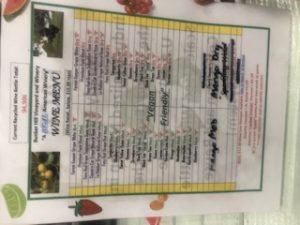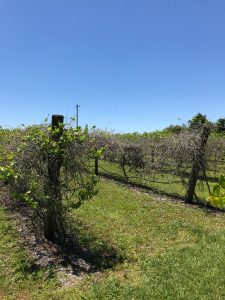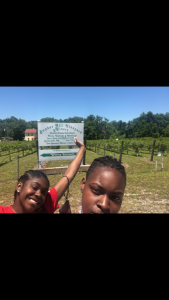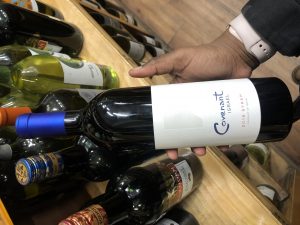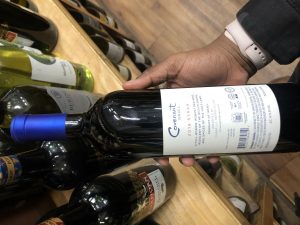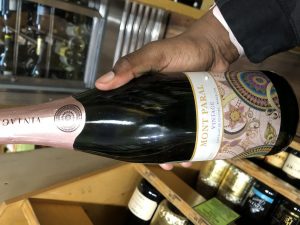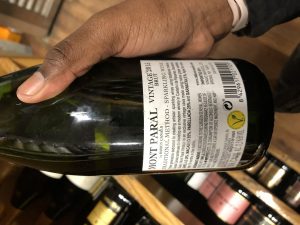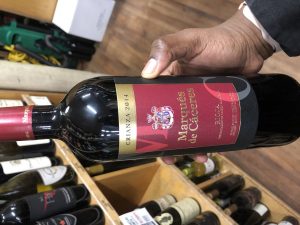The Vineyard in which I visited was Bunker Hill Vineyard and Winery in Parrish, Florida. I chose to go to this Vineyard in Florida because this was near my Tampa vacation destination. Bunker Hill was fairly easy to find on Google, but when driving, very hard to navigate, as it was surrounded by many farms. Bunker Hill was the only winery and vineyard within a 60 mile radius of Tampa. Bunker Hill was a gem, I learned so much information which will further help me in my wine education in the future, including how this was a family operated business which thrived from faith.
The viticulture practices in which Bunker Hill facilitated are plentiful. To begin, Bunker Hill makes wine out of many different fruits and even vegetables. Blueberry, lemon, lime, mango, onion and even coffee wines were made at Bunker Hill. Bunker Hill grows all of the fruit in which they make, which makes them a significant Vineyard because not many vineyards can execute this strategy. Not only do the owners grows majority of the fruit used to make their wines, but they have also been able to recycle over 90,000 wine bottles. Bunker Hill practices eco friendly production and execution in order to be track their carbon footprint. Bunker Hill abides by the Federal Law of making authentic “Natural” wines. All of the wines made at Bunker Hill are labeled, “ Grown, Vinted, Produced and Bottled”. I learned that this is very rare amongst the wine industry. Bunker Hill’s noble, which means the older wines, were typically grape wines.
When it comes to the vinification practices of the winery and vineyard, Bunker Hill grows about 95 percent of the fruit used to make their wines. The only grapes in which they use are 100 percent muscadine grapes, which are native to Florida and Georgia. These muscadine grapes are wind pollinated, which means the wind transports the pollen to allow the flowers to grow. Instead of aging their wine in oak barrels or tanks they use carboys, which are glass tanks in which they ferment the wine in. Once the must and yeast are added to the carboy, the carboy is then airlocked to prevent any oxygen or bacteria getting in and ruining the aging. Bunker Hill ages all their wines, other than the noble wines for one year. As far as the cellar, or where the wine was aged, the owners insisted that the temperature in the room is the temperature of the earth because that’s how nature thrive’s. The owners typically make natural jams from the fruit in which they made the wine, to pair with different meals. For example, I tasted about a teaspoon of strawberry jam inside the strawberry wine and was told to think of the drink as a sangria; in fact it tasted exactly like a sangria.
Being that Bunker Hill is so Eco friendly, they also advertise that they are one of the only Vegan friendly wineries in America. This is because all of their wines are unfiltered. Unfiltered wines are natural in the sense that nothing is added to the wine such as preservatives or “strainers”. Many wineries filter their wines with egg whites which now makes the wine non vegan friendly. This process can be related to raking, which is transferring wine and or filtering the wine from the following rest place. Bunker Hill’s bottling process is they use recycled glass bottles all 750ml. Once the wine has aged in a room temperature “wine cave”, for a year,the wine is then transferring directly into the bottle. One thing that I was told during my tour is that since the wines are unfiltered, when they are transferred into the bottle, they are vinted and aging continues.
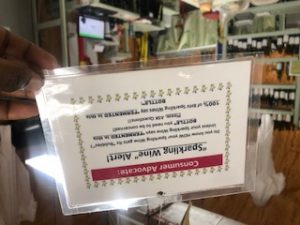
This is one of the only photos I was able to capture in the wine tasting room. there was currently another group in which I did not want to take a photo of.
Citations:
Home. (n.d.). Retrieved from http://www.bunkerhillvineyard.com/
Learn about Wine. (n.d.). Retrieved from https://winefolly.com/
Society of Wine Education Textbook.

